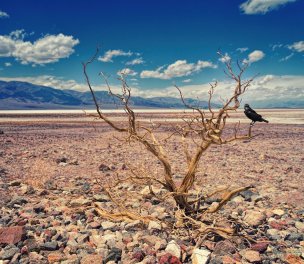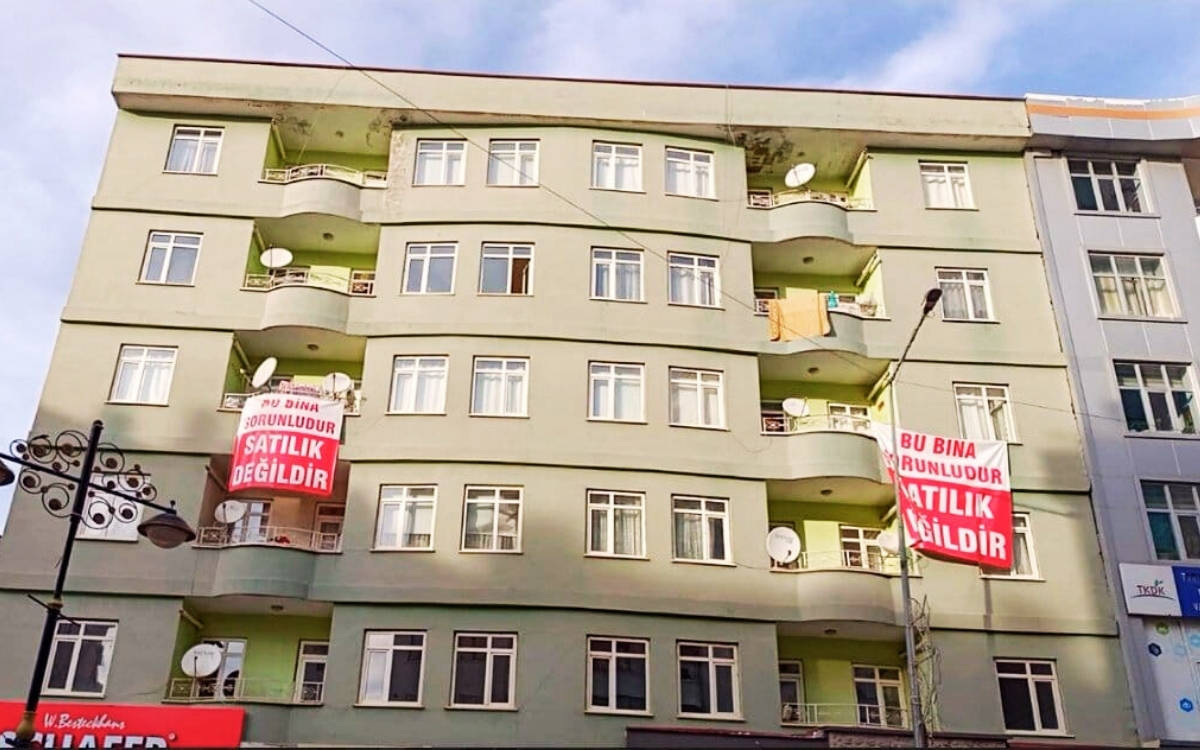Click to read the article in Turkish
Located in the eastern province of Van near the border with Iran, Lake Van is Türkiye's largest lake with a surface area of 3,713 square kilometers. However, the lake has a serious shrinkage problem in recent years, which is associated with drought and the climate crisis.
Evaporation in the lake basin has been much stronger the last few years. Less precipitation and changing types of precipitation are causing Van lake to shrink and many small lakes in the basin to dry up and disappear.
Prof. Faruk Alaeddinoğlu from Van University Department of Geography and Ali Kalçık, the chair of Van Environmental Association commented on the issue for bianet.
Many lakes in the basin dried completely
Loss of water in the basin is not limited to Lake Van. Many rivers, dam lakes and lakes in the region started to dry up in the last years, and many areas that were wetlands before but are now badlands.
Lake Tuz, a saline lake that occupied 371 hectares in the Saray district dried up completely as a result of excessive heat and evaporation. The same happened with the Akgöl lake in Özalp district. Many rivers and dam lakes in the region and the Zernek dam lake which is one of the largest in the region have come close to drying up.
Not only humans but also animals are affected by this shrinkage. We can observe that many bird species including flamingos associated with our province are migrating elsewhere.
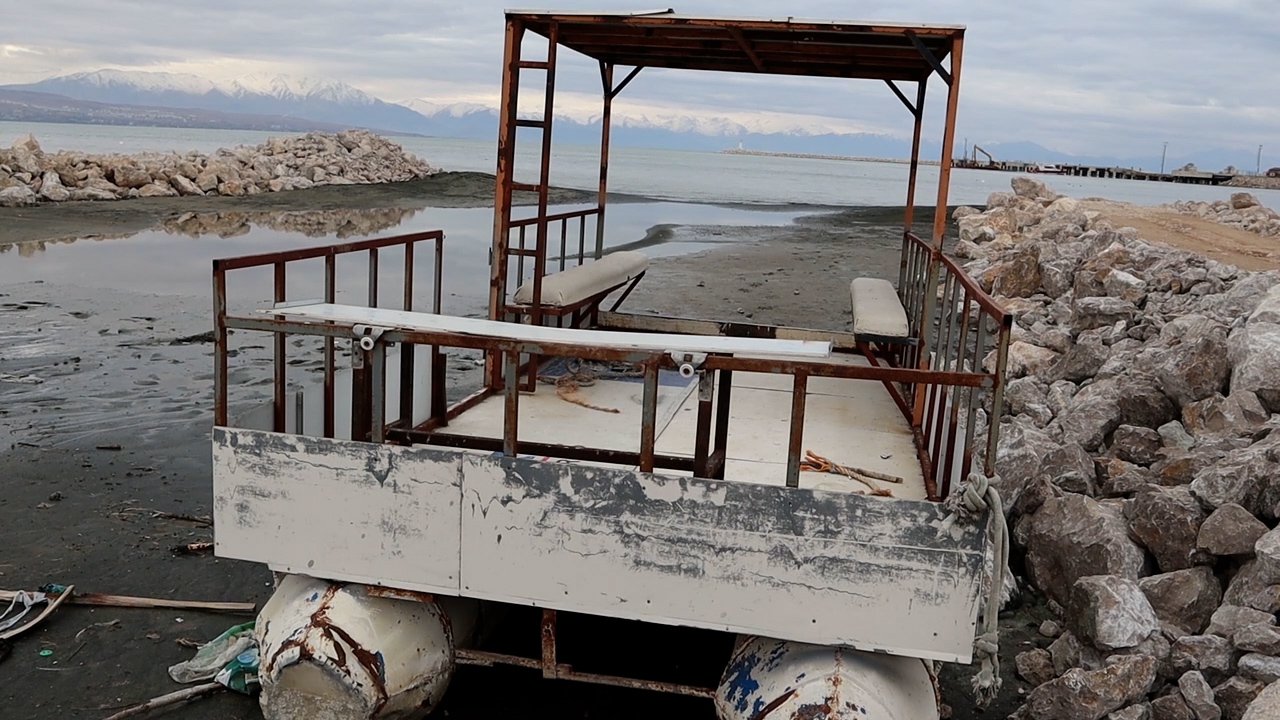
Photo: Şenol Balı
"There is less precipitation, increased evaporation"
Prof. Dr. Faruk Alaeddinoğlu from Van University Geography Department underlined that Lake Van was a closed basin and that this was causing some disadvantages.
Alaeddinoğlu said, "In closed basins, the level of the lake normally moves forward and backward. 30-40 cm of movement is observed, increasing in the winter and decreasing in the summer. However, the problems that the global climate crisis caused in the last 30 years started to be the biggest problem for closed basins. Anomalies are experienced in temperatures with global warming. Today the world is experiencing a 1 °C warming. In the middle latitudes which Türkiye is also in, the effect of this warming is felt stronger. And this temperature rise is not temporary."
Alaeddinoğlu states that the evaporation rate in the basin has increased two-three fold compared to the past, that there was less precipitation, and that the precipitation types were changing. The precipitation that used to fall in winter and as snow is now falling as rain and this is causing the underground waters to decrease and not to be able to feed the lakes in the region.
He said, "Climate change in fact means that weather events that we are used to are changing. We can now face temperature and precipitation values that we cannot anticipate. There are many small and large lakes in this basin and the largest is Lake Van. Increasing evaporation is causing the water level in these lakes to drop. Lake Van has lost an area close to 1-2 kilometers with the withdrawal of water.
"When the precipitation types changed, when there is less snow leaking into the soil, the underground waters are reduced and the lakes and dam lakes cannot be fed. The chain of the loop was broken. With rain as the dominant precipitation form lately, it goes directly into the lake. However, with the effect of evaporation, this water falling into the lake is of no use and the lake is losing water. "
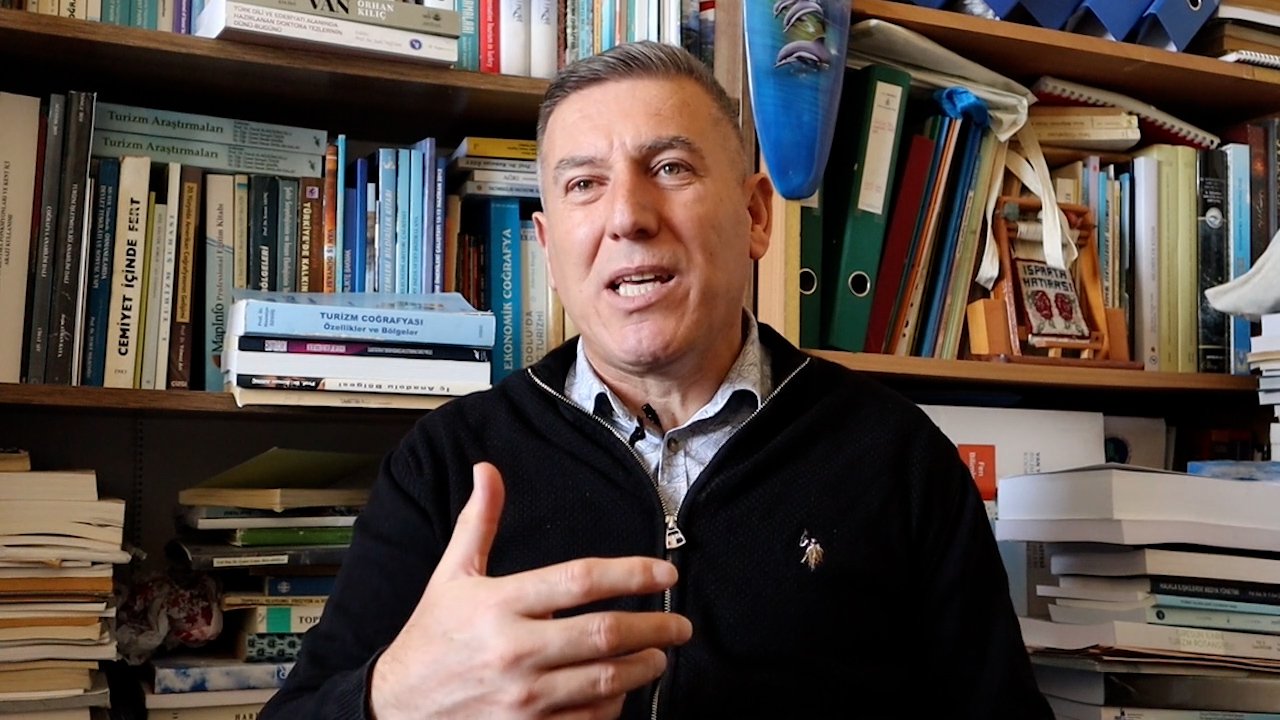
Prof. Dr. Faruk Alaeddinoğlu, Van Yüzüncü Yıl University Geography Department
"Water loss will continue, and migrations will start''
"This situation is permanent now. There may be improvements in the short term but in the long term the result will not change and the basin will continue to lose water. The lake area will continue to shrink" says Alaeddinoğlu pointing at the many problems this will cause.
"This will affect the one million 200 thousand people living in this basin negatively. There will be problems related to drinking water or those who are making their living on agriculture or animal breeding will not be able to continue these activities. Then these people will migrate."
Alaeddinoğlu is arguing that people should adapt themselves to the climate crisis and that some strategies should be implemented before the current situation turns into a tragedy.
"These problems are making our struggle with nature more difficult but we can adapt. The destruction that this problem will cause in the future can be calculated, we, therefore, have science. The requirements can be calculated starting from drinking water to irrigation water and strategies can be developed. Steps should be taken before the problem in the basin turns into a tragedy. Today the world is doing this. For 2030 and later, they are trying to reduce the effects of a breakdown to be experienced."
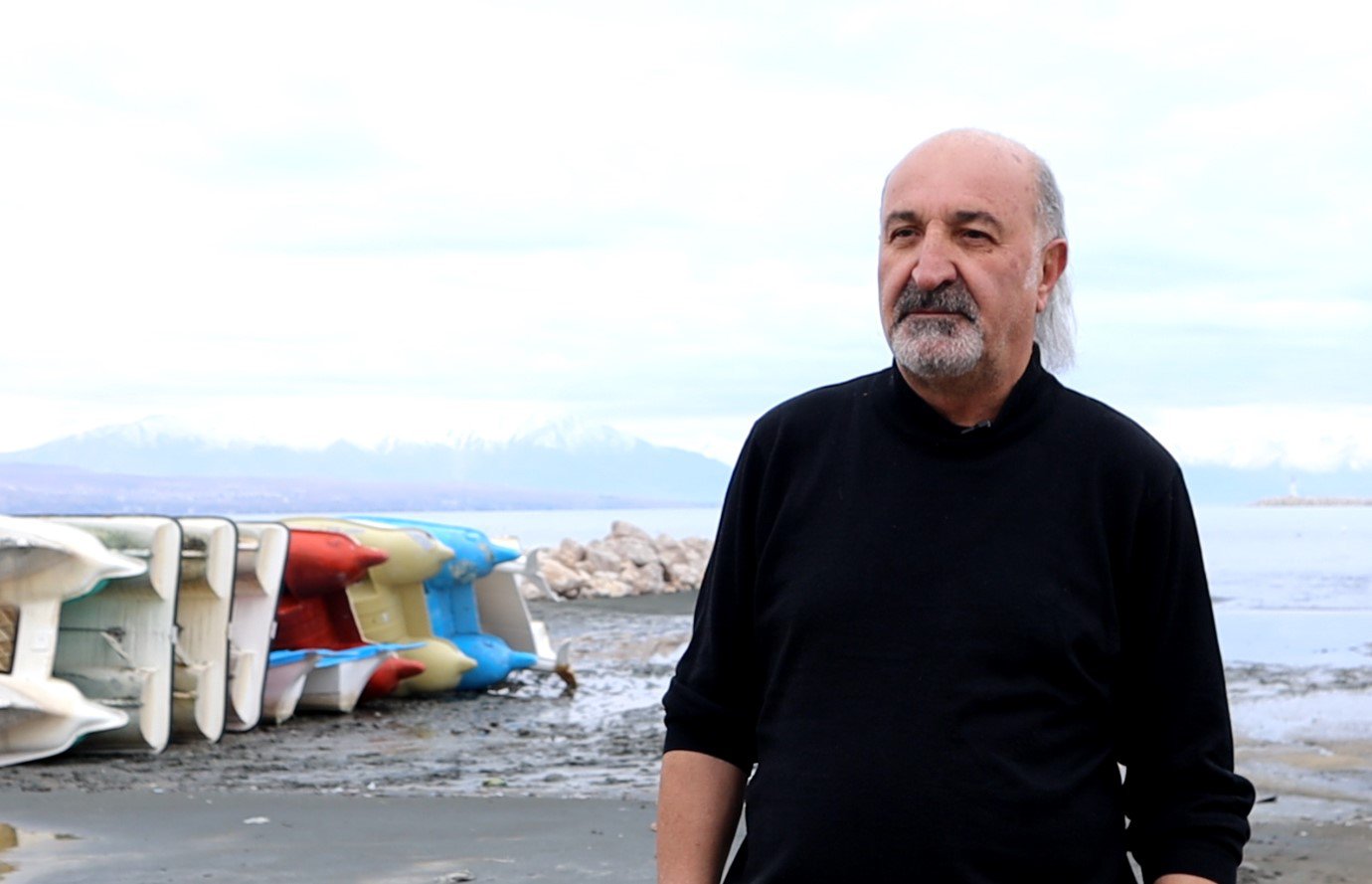
Ali Kalçık, the chairperson of Van Environment Association
'Shrinkage higher in the north of the lake'
Ali Kalçık, the chairperson of the Van Environment Association also states that the withdrawal of water in Lake Van is at dangerous levels.
 The situation of Lake Van now is so worrying. The loss of water in our region is at dangerous levels. I remember swimming here where we are standing and even 300 meters further.
The situation of Lake Van now is so worrying. The loss of water in our region is at dangerous levels. I remember swimming here where we are standing and even 300 meters further.
"The lake water is drifting every day. It is not so apparent in the south part of the lake but in the north, in Erciş district there is a huge withdrawal. The head of the lake may disappear if this goes on. The reason for this is the difference of levels."
Kalçık has argued that humans are causing the problem and that unless we do not abandon the capitalist approach to nature, similar destruction will continue. (ŞB/TY/PE/VK)





.jpg)
as.jpg)
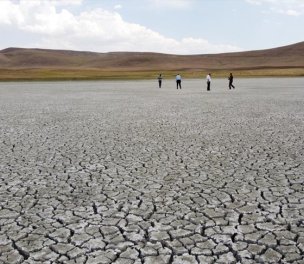
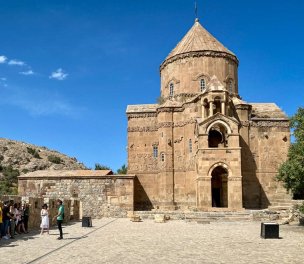
as.jpg)
